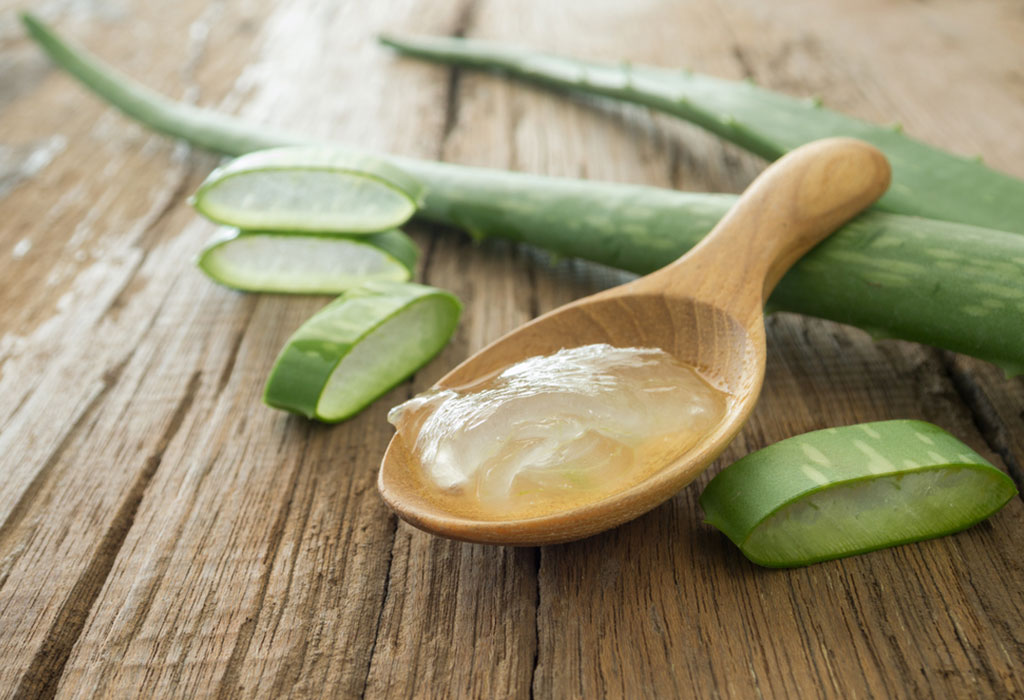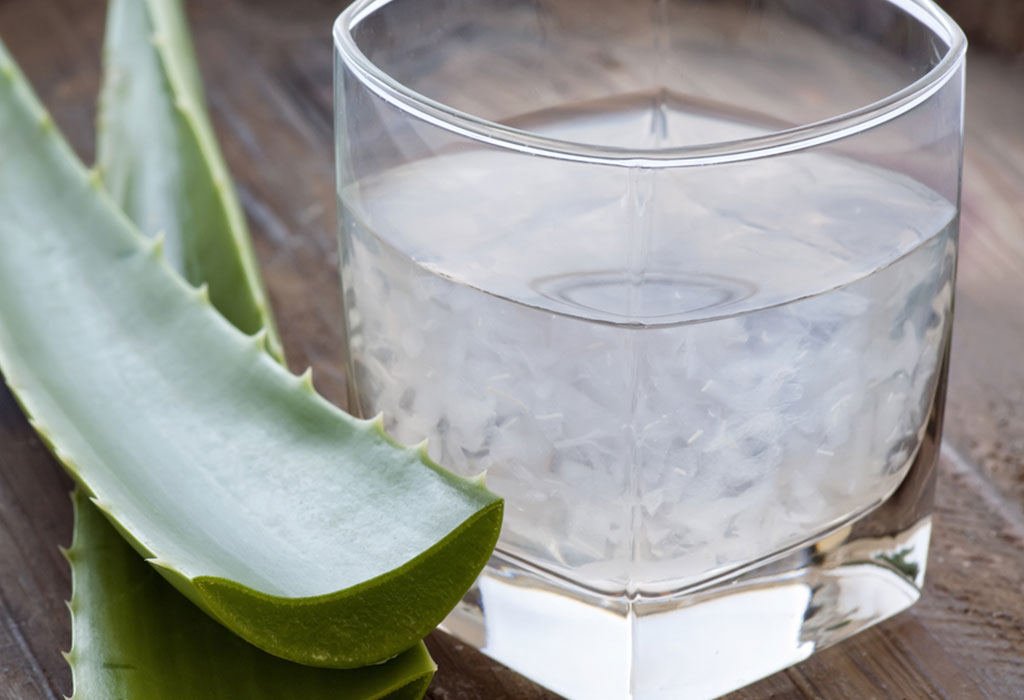In this Article
Aloe vera is popularly used in skin creams and other beauty products because of its many health benefits. People have used the gel from the aloe vera plant for thousands of years for medicine, skin softening and treating maladies like constipation among others. Their leaves contain an inner and outer gel along with a sticky residue called latex from under the leaf’s crust.
Aloe vera can be grown in the house, and the inner gel can be juiced in a blender for consumption. In small amounts, aloe vera can be safely used by pregnant women under their doctor’s guidance.
Common Uses of Aloe Vera
- Aloe vera works effectively in treating skin problems such as acne. Its topical application is also effective against sunburns, itchy skin, and pregnancy stretch marks.
- With strong anti-bacterial properties, aloe vera is useful in treating some of the infections of the skin.
- Aloe vera also has excellent laxative properties that ease bowel movements in times of constipation.
- The extracts from this plant are very useful in treating sensitive and dry skin to soften it.
- It is also effective in controlling blood sugar levels in patients who have type 2 diabetes.
- Extracts from aloe vera are also used to treat disorders such as epilepsy and asthma.
- The cooling effect of aloe vera makes it good in treating heartburn and peptic ulcers.
- The nutritional value and antibiotic properties of aloe vera make it an effective immunity booster for the body. It also lowers fever and fights viruses.
Benefits of Aloe Vera During Pregnancy

- Aloe vera is rich in vitamins and minerals and can occasionally be taken as a juice to supplement the necessary nutrients in the diet.
- Aloe vera juice acts as a soothing agent to the stomach and the intestines and combats morning sickness.
- Aloe vera gel during pregnancy is effective as a natural moisturiser for dry and itchy skin. Applying it regularly keeps the skin soft and supple.
- Aloe vera juice is also thought to dilate the blood capillaries and improve blood circulation. Healthy circulation is key to nutrient supply to the foetus, and it also improves tissue growth and repair in the mother.
- It also soothes inflamed tissues in the gastrointestinal tract while acting as a natural laxative for an easy bowel movement.
Is It Safe to Drink Aloe Vera Juice During Pregnancy?

The consensus in the medical community is that women should exercise caution before drinking aloe vera juice during pregnancy. Certain compounds present in the plant can be harmful to the mother and the baby if taken improperly. Aloe vera is known to increase the risk of uterine contractions which can be dangerous during pregnancy. Aloe vera juice also affects the blood glucose level by lowering it. This could increase the chances of lightheadedness and loss of balance.
The aloe latex found in the plant is a powerful laxative and can create an electrolyte imbalance in the intestines. Breastfeeding mothers should also be cautious as these compounds pass through breast milk and may severely upset the baby’s immature digestive system. However, small doses of aloe vera can be safely consumed during pregnancy. Further research is needed to confirm the facts. Therefore, unless your doctor or health care provider recommends drinking aloe vera juice, it is safer to stay away from it.
Recommended Dosage of Aloe Vera for Pregnant Ladies
Although aloe vera is natural, the presence of certain compounds in it can be unsuitable for some people. It is important to take the advice of your healthcare provider before using aloe vera for nutritional or medicinal benefits. The typical safe-dosage is around 0.04 to 0.17 grams of dried aloe vera as a natural laxative to ease bowel movements. Regular intake of aloe vera has also shown to create a mild laxative dependency on it which may lead to constipation once you stop consuming it. Over-consumption of any food – even the healthy ones – can be dangerous, and moderation is the key.
The Risk Associated With the Consumption of Aloe Vera
- Aloe latex is a powerful laxative and the intake of significant amounts of whole leaf aloe juice instead of just the can lead to painful abdominal cramps and diarrhoea. The latex is also known to cause kidney damage and bloody diarrhoea, and it can severely upset the electrolyte balance. This can lead to unusual heart rhythms, muscle weakness and uterine contractions which can be highly dangerous to pregnant women.
- An increase in the risk of colorectal cancers has been found in those who use aloe for over a year. Other reports also indicate liver inflammation with the intake of high doses of aloe.
- With women who have gestational diabetes, aloe vera juice side-effects during pregnancy include improper regulation of blood glucose levels. Since the juice reduces glucose levels, it can interfere with existing methods of blood glucose regulation and can also lead to hypoglycemia.
- Breastfeeding women should be cautious as some of the compounds get transmitted to infants. The latex is known to cause diarrhoea and vomiting in infants. As the safety of aloe on infants is mostly unknown, it’s best that breastfeeding mothers avoid it.
- People who are allergic to plants belonging to the Liliaceae tend to be allergic to aloe vera. This family includes onions, garlic, lilies, tulips and hyacinths. Allergic reactions can include difficulty breathing, swollen skin, itchy skin with rashes, tightness in the chest and throat. An allergic reaction triggered by aloe should be considered as a medical emergency and treated immediately.
Unless it is recommended by your doctor, it is safer to avoid the consumption of aloe vera during pregnancy.
Resources and References: Livestrong









